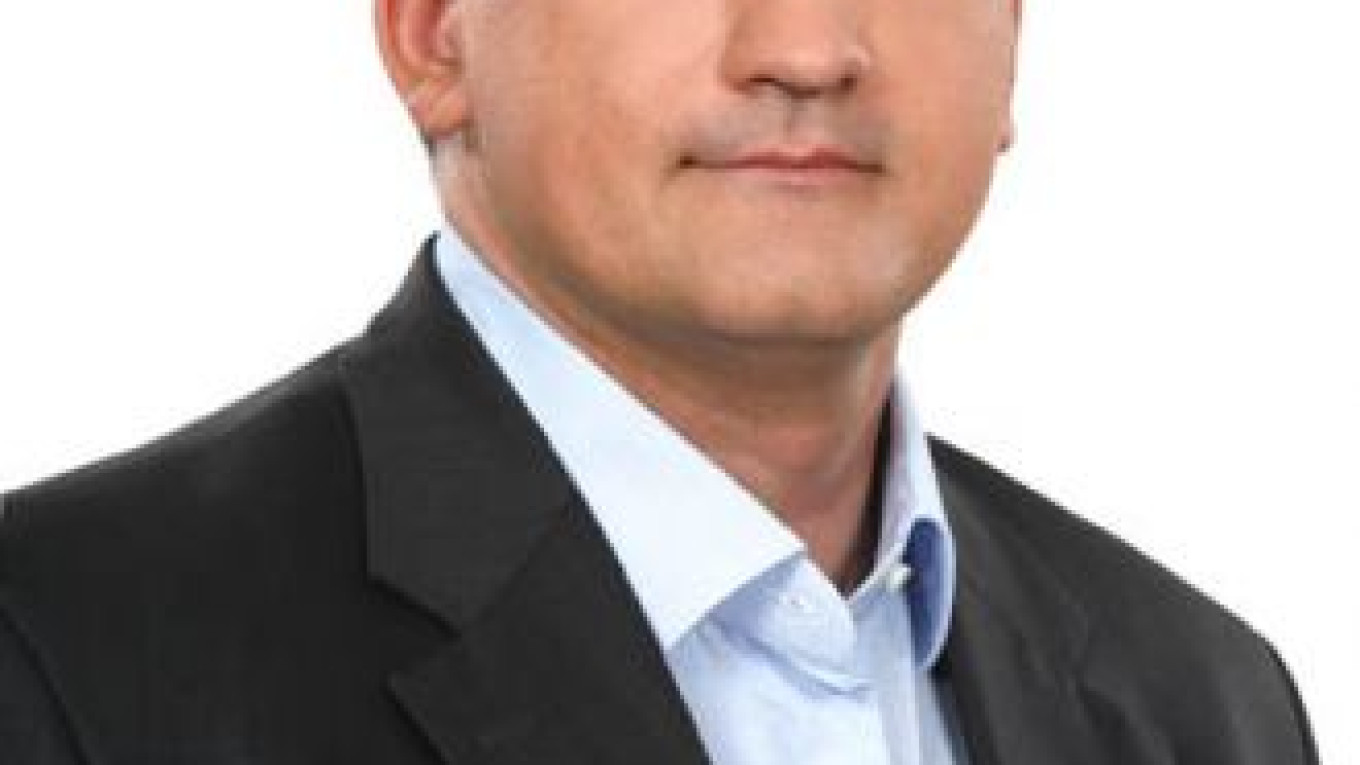The recently appointed head of the southern Ukrainian republic of Crimea says his government refuses to negotiate with newly installed central authorities in the capital, Kiev.
"We do not consider this government that proposes talks to us to be legitimate, that is the main issue," Crimean Prime Minister Sergei Aksyonov told Latvian radio station Baltcom.
Crimea, a peninsula of some 2 million people, has with ample support from Russia resisted the authority of the leadership that came to power last month after the ouster of President Viktor Yanukovych, which followed months of mainly peaceful protests in Kiev. Russian President Vladimir Putin this week described the current Ukrainian government as illegitimate, in effect bolstering the Crimean government's position.
Aksyonov has requested that Moscow provide security assistance in the largely ethnic Russian-populated Crimean Peninsula amid oft-aired concerns the region could come under attack.
Thousands of unidentified troops under apparent command from Russia have taken control over Ukrainian military bases across the Crimea over the past week.
Russia's parliament has given its approval to military intervention in Ukraine, ostensibly for peace-keeping purposes. But Putin has denied that Russian troops are already deployed, and has described the well-armed troops seen driving around Crimea in vehicles bearing Russian military license plates as "local militia."
Crimea plans to hold a vote this month on the future status of the peninsula, with greater autonomy and even secession named as possible options on the ballot.
Aksyonov was appointed prime minister last month by a vote in the Crimean parliament, which was being guarded at the time by unidentified masked gunmen who had occupied the building the previous night.
Speaking to Baltcom, Aksyonov declined to be drawn on whether he supported on secession for Crimean, insisting that it was a decision for the people on the peninsula to make. The majority of the region's population is pro-Russian, although it is unclear to what extent they favor a breakaway from Ukraine.
Despite Moscow's refusal to accept the legitimacy of the government in Kiev, interim Ukrainian Prime Minister Arseniy Yatsenyuk said Tuesday that Russian government officials have nonetheless engaged in what he described as "tepid" consultations.
A Message from The Moscow Times:
Dear readers,
We are facing unprecedented challenges. Russia's Prosecutor General's Office has designated The Moscow Times as an "undesirable" organization, criminalizing our work and putting our staff at risk of prosecution. This follows our earlier unjust labeling as a "foreign agent."
These actions are direct attempts to silence independent journalism in Russia. The authorities claim our work "discredits the decisions of the Russian leadership." We see things differently: we strive to provide accurate, unbiased reporting on Russia.
We, the journalists of The Moscow Times, refuse to be silenced. But to continue our work, we need your help.
Your support, no matter how small, makes a world of difference. If you can, please support us monthly starting from just $2. It's quick to set up, and every contribution makes a significant impact.
By supporting The Moscow Times, you're defending open, independent journalism in the face of repression. Thank you for standing with us.
Remind me later.


